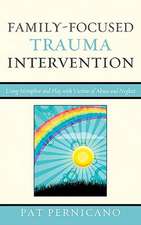Supportive Therapy: A Psychodynamic Approach
Autor Lawrence H. Rocklanden Limba Engleză Paperback – 17 apr 2003
Preț: 264.66 lei
Preț vechi: 278.60 lei
-5% Nou
50.66€ • 53.22$ • 42.57£
Carte tipărită la comandă
Livrare economică 12-26 martie
Specificații
ISBN-10: 046507068X
Pagini: 320
Dimensiuni: 155 x 227 x 18 mm
Greutate: 0.48 kg
Ediția:Revised
Editura: BASIC BOOKS
Colecția Basic Books
Locul publicării:United States
Descriere
The main goal of the therapy described here is to improve ego functions and adaptations rather than to explore unconscious conflicts. Thus, the emphasis is on strengthening reality testing, discouraging impulsivity, and clarifying confused thinking, while minimizing the regression and negative transference characteristic of exploratory therapy. In chapters richly illustrated with clinical material, the author details the strategies and rationales of this practice, covering such topics as transference and countertransference, resistance, working through, and the relationship between supportive therapy and psychopharmacology.
Clinically sophisticated yet immensely practical, this valuable resource will enhance the skill and understanding of every therapist-student, clinician, or teacher-who practices supportive psychotherapy.

















